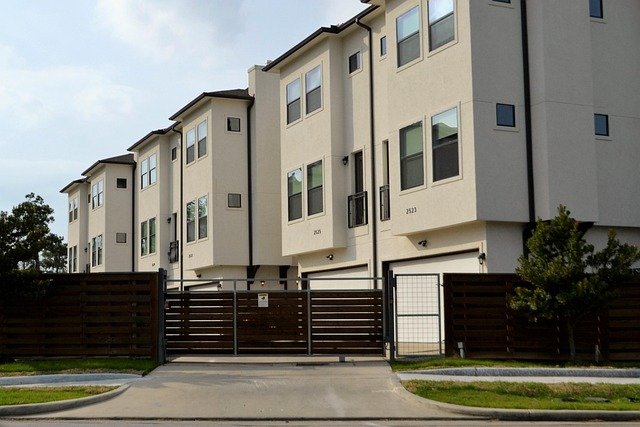Discover Apartments For Sale Listings For 2025. Which Options Fit Your Lifestyle?
Searching for the right apartment to purchase in 2025 requires understanding current market conditions, pricing trends, and what features align with your daily needs. Whether you're a first-time buyer or looking to invest, knowing where to find listings and how to evaluate them can streamline your search. This guide walks you through apartment options available this year, typical costs, and factors that help match properties to your lifestyle preferences.

The apartment market in 2025 continues to evolve with shifting buyer preferences, economic factors, and urban development trends. Prospective buyers now have access to a wider range of listing platforms, from traditional real estate agencies to digital marketplaces that aggregate properties across regions. Understanding how to navigate these resources and what to prioritize during your search can make the difference between finding a suitable home and settling for less than ideal conditions.
Many buyers begin their search online, using property portals that filter results by location, price range, size, and amenities. These platforms often provide virtual tours, neighborhood data, and historical pricing information. Working with licensed real estate agents remains a popular choice as well, offering personalized guidance and access to listings that may not appear on public websites. Attending open houses and scheduling private viewings allow you to assess the condition, layout, and surrounding environment firsthand.
Where Can You Find Apartments For Sale Listings 2025?
Several established platforms serve as starting points for apartment searches. Websites such as Zillow, Realtor.com, Redfin, and Trulia aggregate listings from multiple sources, providing detailed filters and map-based search tools. International buyers or those looking in specific regions may also explore platforms like Rightmove for the UK, Domain for Australia, or local MLS systems accessible through real estate professionals.
Beyond online portals, local newspapers, community bulletin boards, and real estate offices in your target area can reveal opportunities not widely advertised. Networking within your desired neighborhood or attending local housing expos can connect you with sellers and agents who have insider knowledge of upcoming listings. Social media groups focused on real estate in specific cities or regions also serve as informal marketplaces where individuals post properties before they hit major platforms.
How Much Do Apartments Cost in 2025?
Apartment prices vary significantly based on location, size, condition, and local market dynamics. In major metropolitan areas such as New York, San Francisco, or London, one-bedroom apartments can range from $400,000 to over $1 million, while similar units in smaller cities or suburban areas may start around $150,000 to $300,000. Two-bedroom and three-bedroom units typically command higher prices, with luxury developments or properties in prime locations exceeding several million dollars.
Emerging markets and regions experiencing economic growth may offer more affordable entry points, with apartments priced between $80,000 and $200,000 depending on local development and demand. Conversely, established urban centers with limited housing supply often see prices climb steadily year over year. Buyers should also account for additional costs such as closing fees, property taxes, homeowners association dues, and maintenance expenses when budgeting for a purchase.
Prices, rates, or cost estimates mentioned in this article are based on the latest available information but may change over time. Independent research is advised before making financial decisions.
Which Options Fit Your Lifestyle?
Choosing an apartment involves more than price and location. Lifestyle considerations play a central role in long-term satisfaction. If you work remotely, prioritize units with dedicated office space, strong internet connectivity, and quiet surroundings. Families with children benefit from proximity to schools, parks, and family-friendly amenities such as playgrounds or community centers.
Active individuals may prefer apartments near gyms, running trails, or recreational facilities, while those who value nightlife and dining might focus on urban neighborhoods with walkable access to restaurants and entertainment venues. Pet owners should confirm pet policies and look for nearby green spaces. Commuters need to evaluate public transportation options, parking availability, and travel times to their workplace.
Storage capacity, natural light, floor plan flexibility, and building age also influence daily comfort. Modern developments often include energy-efficient appliances, smart home features, and updated security systems, while older buildings may offer more character, larger rooms, or lower purchase prices with renovation potential.
What Are Common Apartment Features in 2025?
Today’s apartment listings frequently highlight features that reflect contemporary living preferences. Open-concept layouts remain popular, creating spacious living areas that blend kitchen, dining, and lounge spaces. Balconies, terraces, or access to rooftop common areas provide outdoor space, especially valued in urban settings.
In-unit laundry, central heating and cooling, and modern kitchen appliances are now standard expectations in many markets. Buildings increasingly offer amenities such as fitness centers, coworking spaces, package rooms, and secure entry systems. Sustainable features like solar panels, energy-efficient windows, and water-saving fixtures appeal to environmentally conscious buyers and can reduce long-term utility costs.
How Do You Evaluate an Apartment Before Buying?
Thorough evaluation protects your investment and ensures the property meets your needs. Start by reviewing the building’s condition, including the roof, plumbing, electrical systems, and common areas. Request maintenance records and inquire about upcoming repairs or assessments that could affect your budget.
Inspect the individual unit for signs of water damage, mold, pest issues, or structural concerns. Test windows, doors, appliances, and heating or cooling systems. Review the homeowners association rules, budget, and reserve fund status if applicable. Understanding monthly fees, special assessments, and restrictions on renovations or rentals helps avoid surprises after purchase.
Research the neighborhood’s safety, school ratings, future development plans, and resale trends. Speaking with current residents can provide insights into noise levels, management responsiveness, and community culture. Hiring a professional home inspector offers an objective assessment and identifies potential problems that may not be immediately visible.
Conclusion
Finding the right apartment for sale in 2025 involves balancing budget, location, features, and lifestyle priorities. With numerous listing platforms available and a diverse range of properties on the market, buyers have more tools than ever to conduct thorough research and make informed decisions. By understanding typical costs, evaluating your personal needs, and carefully inspecting potential properties, you can navigate the buying process with confidence and secure a home that supports your daily life and long-term goals.




